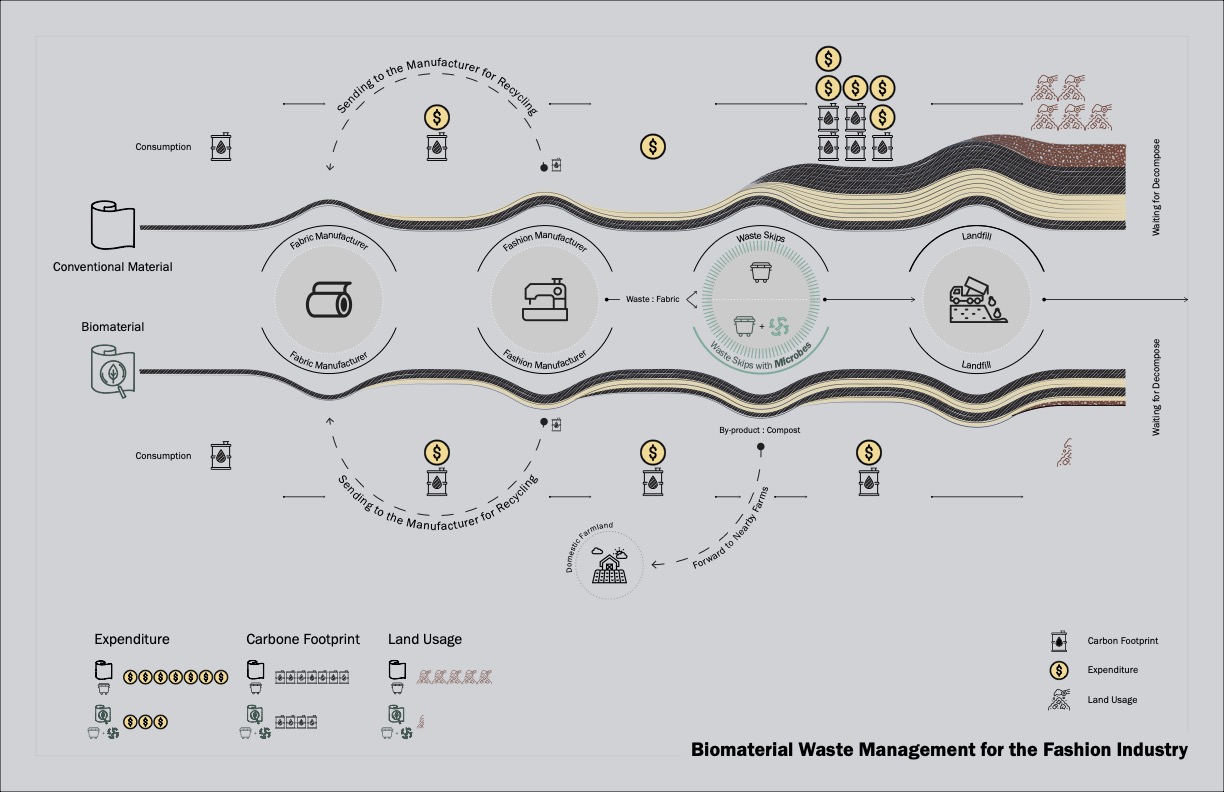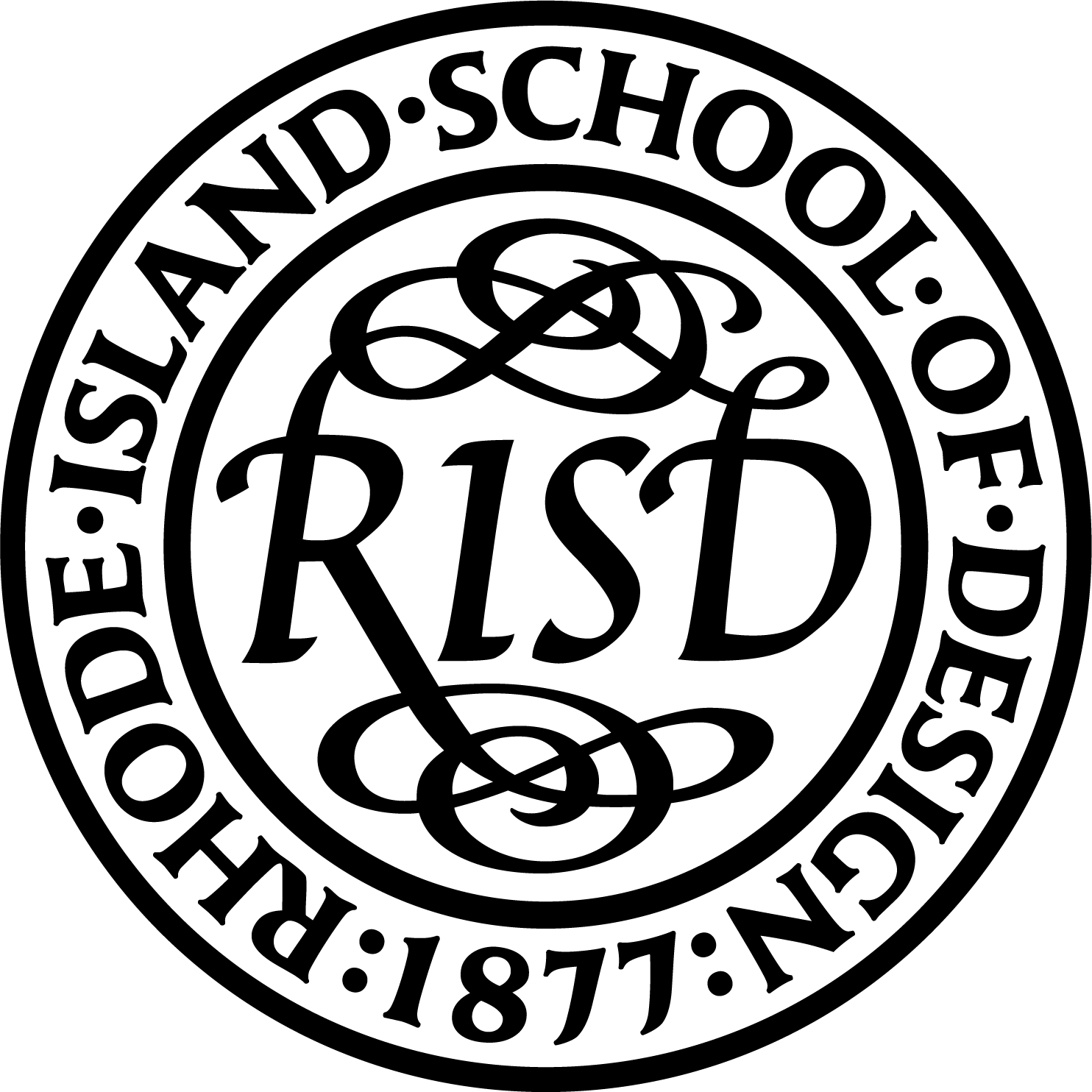Biomaterials Waste Management

︎ Creator:
Minho Kwon
︎ Supervisor: Peter Yeadon
In the circular economy, products are designed to be used more than once. This means that when a product has reached the end of its life-cycle, it can be dismantled and the parts used to make something new. This makes it easier to reduce waste and reuse resources. The circular economy also includes ways of reducing energy and water use, as well as ways to reduce emissions. It's all part of a larger push to create a more sustainable future.
In the future, we will see more and more businesses adopting the circular economy. This means that products will be made with careful consideration for the environment, and that businesses will be more transparent about their environmental impact. We'll also see more incentives for businesses to recycle and reuse materials. And, because nothing is truly circular, manufacturers will have to manage their waste better, even waste that’s biodegradable.
Therefore, Minho Kwon has conceived of a new kind of waste management system for manufacturers of biomaterials. The system uses microorganisms to decompose biomaterial waste from manufacturing, before the waste is carted away. This system would reduce the amount of biomaterial waste that’s sent to landfills, reducing land use, and would also reduce greenhouse gas emissions, as the organic waste would be broken down quickly.
Kwon imagines biomaterial waste decomposing in biodigester bins, on site, until the volume is reduced by 95% and the bins are ready to collect. This waste reduction would significantly reduce waste management costs for the manufacturer.
︎ Supervisor: Peter Yeadon
In the circular economy, products are designed to be used more than once. This means that when a product has reached the end of its life-cycle, it can be dismantled and the parts used to make something new. This makes it easier to reduce waste and reuse resources. The circular economy also includes ways of reducing energy and water use, as well as ways to reduce emissions. It's all part of a larger push to create a more sustainable future.
In the future, we will see more and more businesses adopting the circular economy. This means that products will be made with careful consideration for the environment, and that businesses will be more transparent about their environmental impact. We'll also see more incentives for businesses to recycle and reuse materials. And, because nothing is truly circular, manufacturers will have to manage their waste better, even waste that’s biodegradable.
Therefore, Minho Kwon has conceived of a new kind of waste management system for manufacturers of biomaterials. The system uses microorganisms to decompose biomaterial waste from manufacturing, before the waste is carted away. This system would reduce the amount of biomaterial waste that’s sent to landfills, reducing land use, and would also reduce greenhouse gas emissions, as the organic waste would be broken down quickly.
Kwon imagines biomaterial waste decomposing in biodigester bins, on site, until the volume is reduced by 95% and the bins are ready to collect. This waste reduction would significantly reduce waste management costs for the manufacturer.
